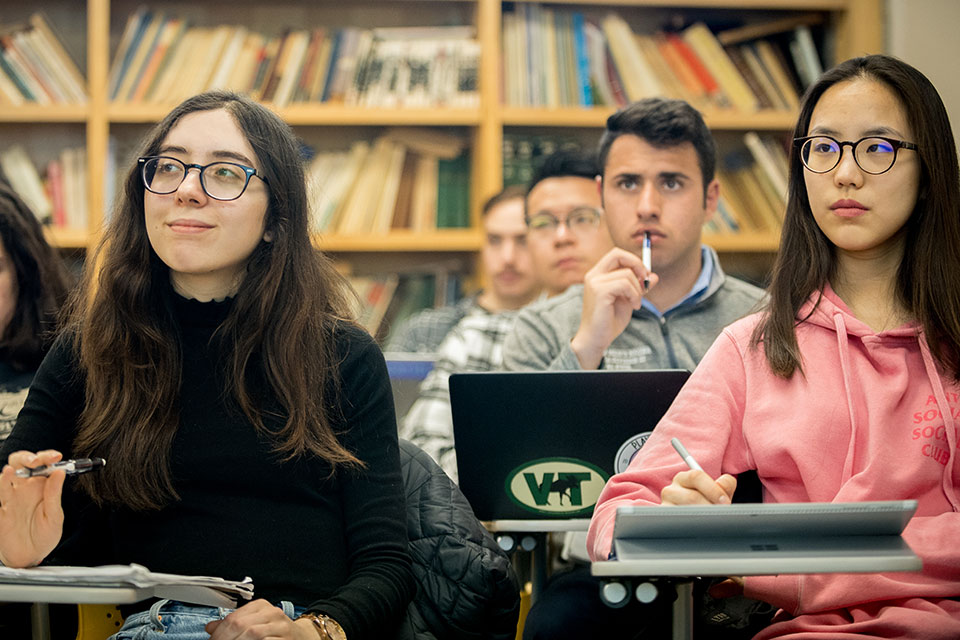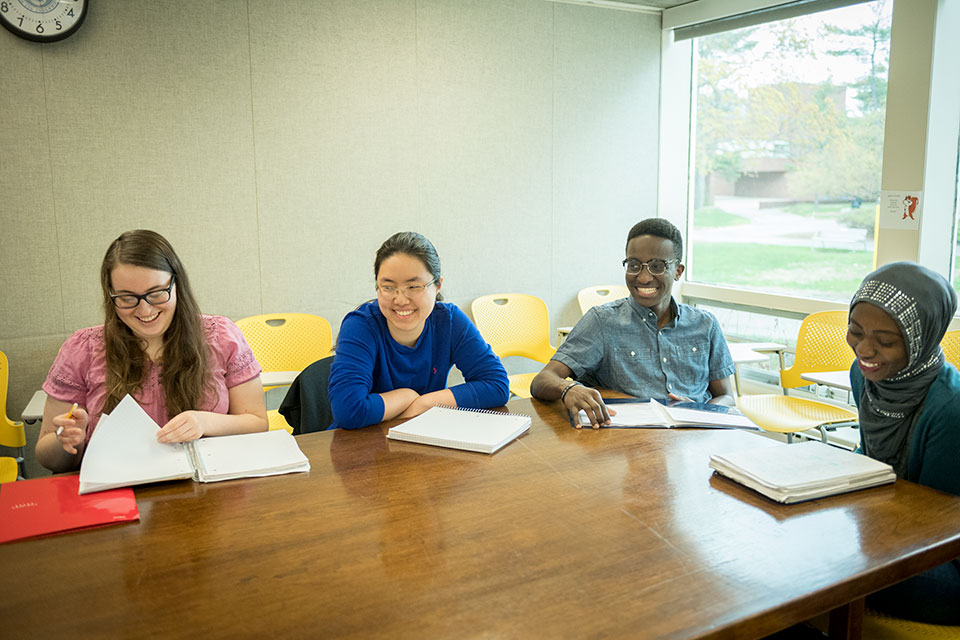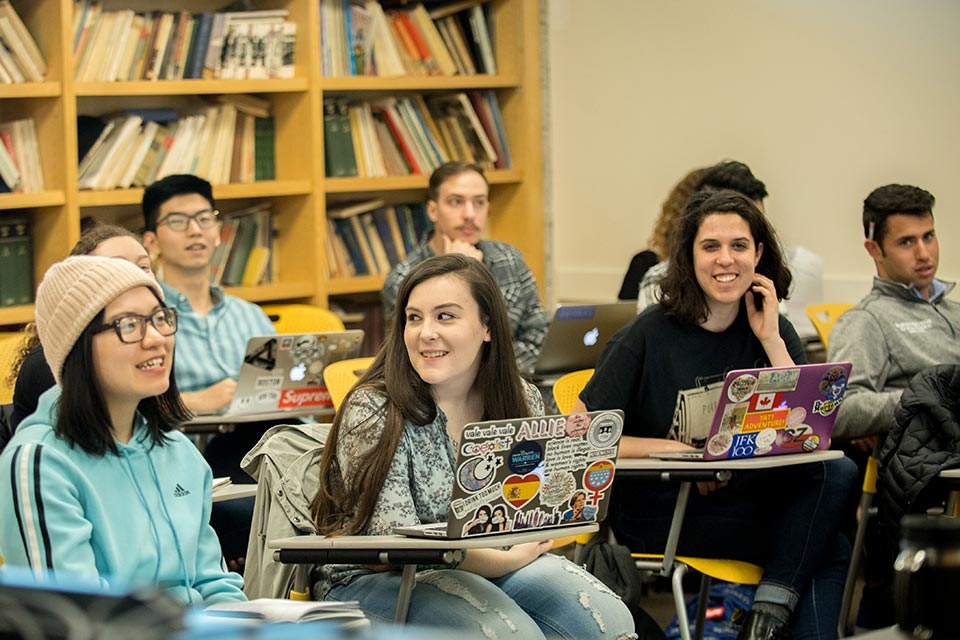The Department of Sociology has always been a distinctive place to study the social world. Continuing a long-standing commitment to social justice and critical scholarship, our faculty conduct innovative research on a variety of topics that are of interest to sociologists, practitioners, and students alike.
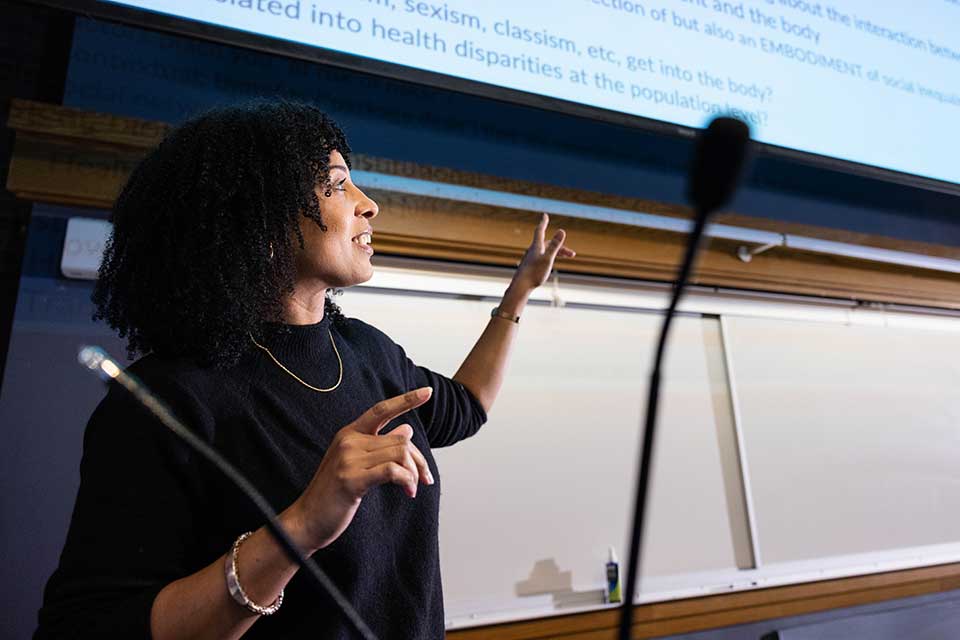
Sociology at Brandeis: Rooted in fighting social injustice, fueled by analysis and research
Clusters
While we are broadly interested in inequality, our clusters of faculty expertise are:
Informed by feminist, indigenous, antiracist and postcolonial lenses, this cluster focuses on how gender, race, ethnicity, class and sexuality are co-constituted within a capitalist system and shape social life.
This cluster bridges medical sociology and science and technology studies, integrating work on the body, health, and illness with biomedical and global/public health perspectives.
This cluster focuses on the relationship between humans and the environment, with particular attention to climate, reproductive and food justice.
This cluster centers global and transnational perspectives to understand development, (im)migration and globalization.
This cluster considers the ways that systems of power and meaning shape, and are shaped by markets, organizations, states and social movements.
This cluster focuses on the social and political dynamics of communities, particularly those in urban spaces, as well as within family units.
Analysis and research
While these six clusters identify our core areas of expertise, our department and faculty are inherently collaborative and cross-cutting in their interests. What ties us together are critical approaches to understanding our world and its social, political and economic systems, particularly capitalism. We train students in research methods, data analysis and diverse theoretical perspectives. Through active and collaborative learning, our students also gain skills to engage in the community and the world as active, self-reflective change agents.

Undergraduate Program
In addition to mastering sociology theory and methods, you'll focus on one of four areas: gender and family; institutions, culture and religion; health and illness; and politics and social change.
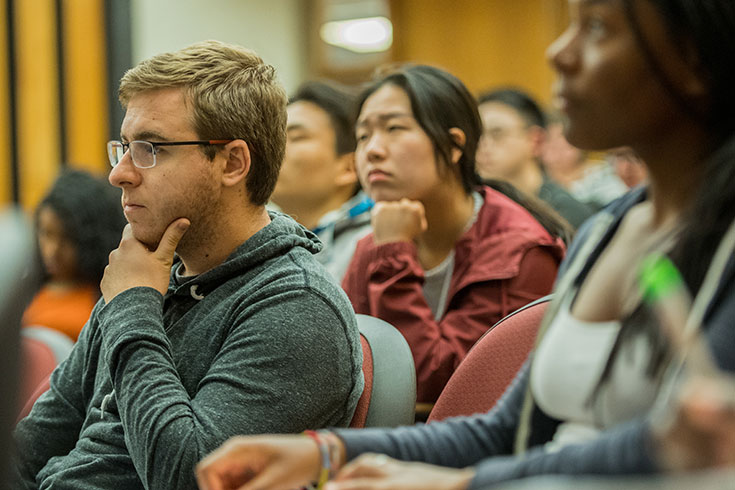
Graduate Programs
The department offers three graduate degree programs:
- A doctoral program that leads to a PhD in Sociology
- A joint doctoral program in Sociology and Social Policy with the Heller School for Social Policy and Management
- A joint master's program in Sociology and Women's, Gender, and Sexuality Studies that leads to an MA in Sociology and Women's, Gender, and Sexuality Studies
